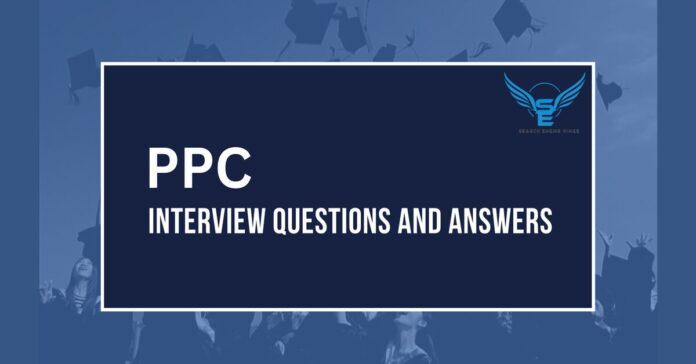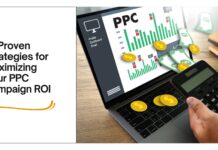PPC Basics:
Question 1. What is PPC advertising, and how does it differ from organic search?
Answer: PPC (Pay-Per-Click) advertising is a digital marketing model where advertisers pay a fee each time their ad is clicked, directing users to their website. It’s a way to buy visits to a site rather than earning them organically. In contrast, organic search refers to the unpaid results that appear on search engine results pages (SERPs) based on their relevance to the user’s search terms. The main difference is that PPC ads are paid placements, while organic search results are determined by a search engine’s algorithm.
Question 2. Explain the key components of a PPC campaign.
Answer: A PPC (Pay-Per-Click) campaign’s key components include keywords, ad creatives, and bid strategy. Keywords target audience searches, ad creatives engage users, and bid strategy manages budget and ad placement for optimal results.
Keywords and Targeting:
Question 1. How do you conduct keyword research for a PPC campaign?
Answer: Identify your campaign’s goals, target audience, and industry. Use keyword research tools (e.g., Google Keyword Planner, SEMrush) to find relevant keywords with high search volume and relevance. Prioritize keywords with good commercial intent and match them to your campaign objectives.
Question 2. What are long-tail keywords, and why are they important in PPC?
Answer: Long-tail keywords are specific and longer phrases that are less commonly searched – for but highly relevant to a particular topic or product. In PPC (Pay-Per-Click) advertising using long-tail keywords is necessary because they often have lower competition and cost, yet tend to attract more qualified and targeted traffic, leading to higher conversion rates and better ROI.
Question 3. Describe the concept of match types in keyword targeting.
Answer: Match types in keyword targeting refer to the variations of keywords used in online advertising, such as exact match (precise keyword), phrase match (keyword phrase in order), broad match (related terms), and modified broad match (specific terms with flexibility), determining how closely a search query must match a selected keyword to trigger an ad’s display.
Ad Creation and Formats:
Question 1. What elements make up a well-structured PPC ad?
Answer: A well-structured PPC ad includes a compelling headline, relevant and concise ad copy, a clear call-to-action (CTA), and strategically chosen keywords. It also considers the target audience, uses ad extensions effectively, and directs users to a relevant landing page.
Question 2. What are ad extensions, and why should they be used?
Answer: Ad extensions are additional pieces of information that can be added to your online advertisements, providing extra details like phone numbers, links, locations, or callouts. To enhance the visibility and effectiveness of your ads by providing more relevant information to potential customers, increasing click-through rates, and improving ad ranking in search engine results.
Question 3. Explain the importance of ad relevance and its impact on campaign performance.
Answer: Ad relevance is crucial as it directly affects campaign performance by influencing click-through rates (CTR), ad placements, and costs. Relevant ads improve user engagement, reduce bounce rates, and lead to higher Quality Scores, resulting in better positioning and cost-efficiency.
Quality Score and Bidding:
Question 1. What is a Quality Score, and how is it calculated?
Answer: Quality Score is a metric used in online advertising, particularly in Google Ads, to measure the relevance and performance of keywords and ads. It’s calculated based on factors like click-through rate, ad relevance, and landing page quality, influencing ad position and cost-per-click.
Question 2. How does the Quality Score affect the performance of your PPC ads?
Answer: Quality Score directly impacts the performance of PPC ads by influencing ad position, ad rank, and cost-per-click. Higher Quality Scores lead to better ad placements, lower costs, and improved ad visibility.
Question 3. Discuss the relationship between bid amount and ad positioning.
Answer: In online advertising auctions, higher bid amounts typically lead to better ad positioning, with ads from higher bidders appearing closer to the top of search results or webpage placements, increasing visibility and potential clicks. However, other factors like ad relevance and quality can also influence positioning.
Campaign Management and Optimization:
Question 1. Describe the process of setting up a PPC campaign.
Answer: Although PPC advertising looks different on each platform, the approach is usually as follows:
Keyword Research: Identify relevant keywords for your business.
Campaign Setup: Create ads, set budget, target audience, and launch on the chosen platform.
Question 2. How do you monitor and track the performance of a PPC campaign?
Answer: Monitor and track PPC campaign performance through key metrics like click-through rate (CTR), conversion rate, cost per click (CPC), and return on ad spend (ROAS). Use analytics tools (e.g., Google Analytics) to assess traffic, conversions, and user behavior, adjusting keywords and ad content based on data-driven insights for optimal results.
Question 3. Explain the concept of A/B testing and its significance in PPC.
Answer: A/B testing involves comparing two versions (A and B) of a webpage or ad to determine which performs better. In PPC (Pay-Per-Click) advertising, A/B testing helps optimize ad elements like headlines or visuals to enhance click-through rates and conversions.
Question 4. What is the role of negative keywords, and why are they used?
Answer: Negative keywords are used in online advertising campaigns to prevent ads from being shown when specific keywords are present in a user’s search query. They help refine targeting by excluding irrelevant or undesirable searches, optimizing ad spend, and improving ad relevance.
Metrics and Analysis:
Question 1. Define click-through rate (CTR) and its importance in PPC advertising.
Answer: Click-through rate (CTR) is the ratio of users who click on an ad to the total number of users who view it, expressed as a percentage. It is essential in PPC advertising as it measures the effectiveness of ads in generating clicks and indicates how relevant they are to the audience, influencing ad quality scores and campaign performance.
Question 2. What is the conversion rate, and how is it calculated?
Answer: Conversion rate is the percentage of users who take a desired action out of the total visitors to a website or platform. It’s calculated by dividing the number of desired actions (e.g., purchases, sign-ups) by the total number of visitors and multiplying by 100.
Question 3. Explain the difference between impressions and clicks.
Answer: Impressions refer to the number of times an ad or content is displayed to users. Clicks, on the other hand, represent the count of times users interact by clicking on the ad or content. In essence, impressions reflect exposure, while clicks indicate active engagement.
Platforms and Tools:
Question 1. Name a few popular PPC platforms other than Google Ads.
Answer: These are the names of well-known PPC platforms.
- Microsoft Advertising (formerly Bing Ads)
- Facebook Ads
- Amazon Advertising
- Twitter Ads
- LinkedIn Ads
- Pinterest Ads
Question 2. How would you use Google Keyword Planner for keyword research?
Answer: In Google Keyword Planner, enter relevant keywords or phrases related to your topic. The tool will suggest related keywords and show their search volume, competition, and cost-per-click data. Select keywords with a balance of high search volume and manageable competition for your content or advertising campaigns.
Strategy and Trends:
Question 1. What are some strategies for improving ad performance over time?
Answer: Choose the appropriate keywords for your advertising to target your audience, get rid of any extraneous words or keywords, and post well-focused ads to get customers to your website. A carefully thought-out content strategy can help with this.
Question 2. Discuss the importance of mobile optimization in PPC campaigns.
Answer: Mobile optimization in PPC campaigns is crucial because an enormous percentage of – internet users access content and ads through mobile devices. Ensuring that your ads and landing pages are optimized for mobile improves user experience, boosts click-through rates, and ultimately drives better conversion rates, maximizing the effectiveness of your PPC investment.
Question 3. How is voice search impacting PPC advertising?
Answer: Voice search is changing PPC advertising by altering search query patterns, favoring longer conversational queries. Advertisers need to adapt by targeting natural language phrases, optimizing for featured snippets, and refining their ad copy to match spoken language patterns.







